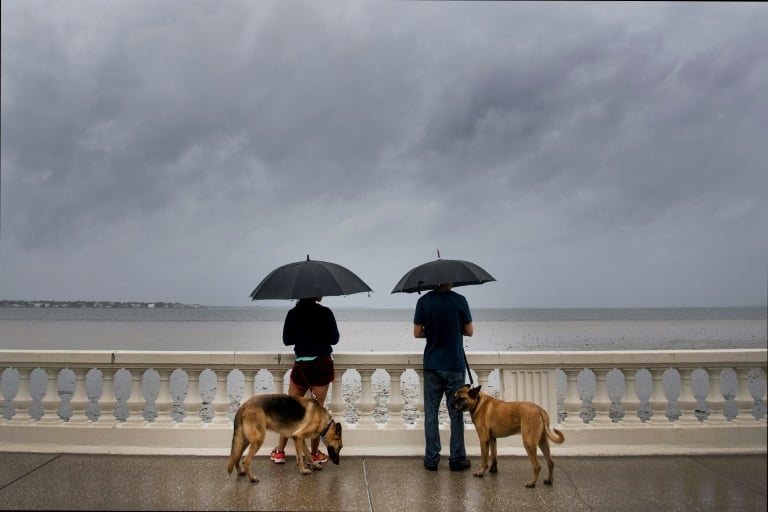Daily Lotto results: Friday, 18 July 2025
The coastal cities of St. Petersburg and Clearwater and Tampa have avoided a major hurricane since 1921, a stretch of good luck that locals attribute to everything from an ancient Indian blessing to magical powers in the sand crystals of Siesta Key, which is ranked the top beach in America.
But with Hurricane Irma charging northward, packing Category Four winds of up to 130 miles (215 kilometers) per hour, forecasters say the region can no longer avoid disaster.
“If you live in Naples, in Fort Myers, in Sarasota, in the Tampa Bay region, this storm has the potential to be that sort-of-worst-case scenario that meteorologists and emergency planners dread,” Senator Marco Rubio said on Face the Nation on Sunday.
“It’s been so long since the Tampa region has had a storm that some people perhaps have no memory of what it’s like to be through one of these.”
– $175 billion at stake –
According to a 2015 report from the Boston-based firm Karen Clark and Co., Tampa Bay is the most vulnerable place in the nation to storm surge from a hurricane, and stands to lose $175 billion.
Part of the reason for its weakness is simple geography.
On the western edge of the Florida peninsula, St. Petersburg juts out as a peninsula of its own into the Gulf of Mexico.
Tampa Bay, nestled inside the arm of that mini peninsula, “creates a large funnel — particularly for a hurricane with its radius of maximum winds near the mouth of the bay,” said the Clark and Co. report.
“A severe storm with the right track orientation will cause an enormous buildup of water that will become trapped in the bay and inundate large areas of Tampa and St. Petersburg.”
– Storm surge risk –

A couple walk their dogs on Bayshore Boulevard in Tampa, Florida, ahead of Hurricane Irma’s landfall
Another factor is the sloping land off the coast, which allows water to build up during a hurricane and force deadly storm surge over land.
This wide continental shelf means Tampa would get twice as much storm surge — the leading killer in a major hurricane — as Miami on the east coast.
Also, many more people are now at risk. The population of the Tampa area was about 10,000 back in 1921, when a Category Three hurricane hit.
Today, Tampa Bay has three million residents, about half of whom live less than 10 feet (three meters) above sea level.
“This will go up our west coast,” Florida Governor Rick Scott said Sunday, as Irma pummelled the Florida island chain known as the Keys.
The National Hurricane Center’s 1500 GMT advisory predicted five to eight feet of storm surge in Tampa. But the governor warned of more.
“We’re going to have 10 to 15 feet above ground level of storm surge. The west coast is very, very low.”
– Climate change denial –
Governor Scott, a Republican, has banned the use of climate change in official state communications, an approach critics say has not helped prepare Tampa Bay for the big one.
A flurry of high-rise condos and hotels and even a seaside hospital have been erected along the coast in recent years, despite the threat posed by sea level rise.
A recent report by CoreLogic found that more than 450,000 homes in Tampa Bay would suffer damage from a big hurricane.
Adding to concern about Irma, many residents were taken by surprise as the track of Irma shifted to the west this week, and may not have evacuated in time.
But as Irma closed in, Tampa Mayor Bob Buckhorn said the city did everything it could to get people out of the coastal areas, known as Zone A.
“I am sure there are still people that are still there, thinking that they can hunker down on this storm,” he told a press briefing, before paraphrasing a famous boxer’s words.
“I never thought I would be quoting Mike Tyson, but ‘Everybody has a plan until they get punched in the face,'” he said.
“Well, we are about to get punched in the face.”